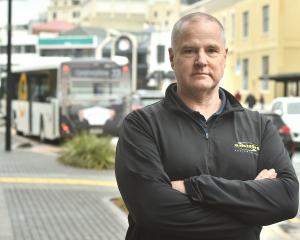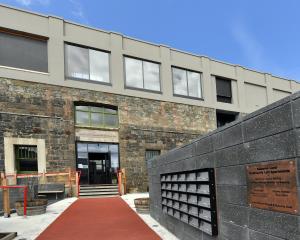Communications from health officials about the new Dunedin hospital amid controversial design revisions and construction delays have not been good enough, a government agency chairman has conceded.
Te Whatu Ora Health New Zealand (HNZ) board chairman Rob Campbell apologised for failure to keep the public in the loop.
"The new hospital belongs to the public.
"Their taxes are paying for it, so they are entitled to know what’s going on.
"The project has failed to communicate well, and the resultant vacuum has led to frustration and some miscommunication.
"On behalf of the project I apologise and offer an assurance that we will do better from now on."

The Government has faced an enduring backlash since it announced before Christmas $90 million of design cuts would be needed to rein in cost escalations that were otherwise headed for $200 million.
A proposed redesign of the inpatient building, resulting in a delay of when it would be finished, has been criticised as achieving little in an inflationary environment.
Information that has been made available about design revisions has been interpreted as attacking staff working conditions.
The Dunedin City Council this year approved a campaign advocating the hospital be built to the specifications in the detailed business case approved by the Cabinet.
Dunedin Mayor Jules Radich argued the Government should be delivering the hospital it promised and Invercargill Mayor Nobby Clark said lessons should be learnt after the hospital there was built on "poor projections and is now short".
Ongoing concern led to new Health Minister Dr Ayesha Verrall visiting Dunedin on her second day in the role.
Local Advisory Group chairman Pete Hodgson said Dr Verrall had now asked him to assist with communicating accurate and timely information.
"It is fair to say she has not been best pleased.
"A key to maintaining the trust and goodwill of the public is to keep talking when things get tough. We didn’t.
"The resultant void was filled with people’s worst fears and with leaked documents that are well out of date."
A highly critical assessment from HNZ Southern in September about cuts understood to be more drastic than what is now proposed was leaked to media last year.
"It is Southern’s strong opinion [that] any scope reduction of any form is ill-advised," the document stated.
Te Whatu Ora has lately been involved in meetings with "stakeholders" in the South.
Mr Radich characterised this as health officials looking to "sell" the Government’s plans and suggested the exercise was more about them talking than listening to community concerns.
Mr Clark did not take issue with this characterisation.
However, Central Otago Mayor Tim Cadogan said it was quite clear cuts would not be reversed, and Waitaki Mayor Gary Kircher said communication with Te Whatu Ora had been useful.
Among the key considerations was how sufficient healthcare could be delivered for the whole region, Mr Kircher said.
HNZ health and specialist services regional director Dan Pallister-Coward said the agency had worked with local clinical staff, community representatives and mana whenua to ensure the facility would support the needs of clinical services, equity and inclusivity.
Clinical groups continued to meet.
"We would like to reassure the community that we remain committed to ensuring Dunedin will receive a state-of-the-art facility.
"Better care for patients with safe, modern facilities remains the top priority for everyone working on this project.
"Changes to the design will not impact the delivery of health services now and will meet the health needs of the local community and wider region into the future," Mr Pallister-Coward said.












